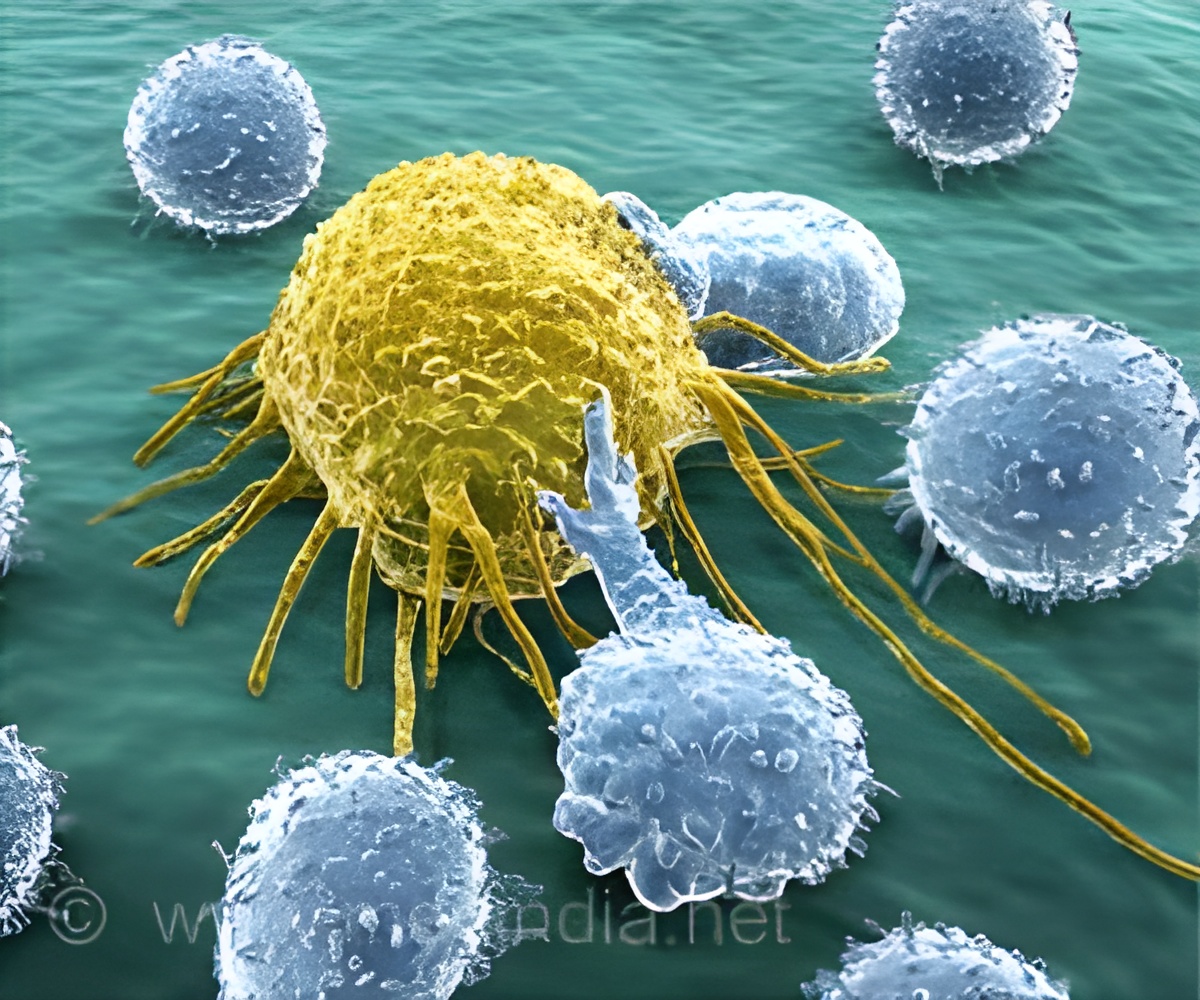Machine learning (artificial intelligence) identifies tumor gene variants and sensitivity to drugs in The Cancer Genome Atlas.

‘Machine learning (artificial intelligence) identifies tumor gene variants and sensitivity to drugs in The Cancer Genome Atlas.’





"Targeted sequencing can find individuals with certain mutations that are thought to confer susceptibility to anti-cancer drugs," said senior author Casey Greene, PhD, an assistant professor of Pharmacology in the Perelman School of Medicine at the University of Pennsylvania. "But many people may lack these mutations, and as machine learning approaches improve they may help guide these patients to appropriate therapies."
Greene and first author and doctoral student Gregory P. Way used machine learning to classify abnormal protein activity in tumors. This branch of artificial intelligence develops computer programs that can use new data to learn and make predictions. The algorithm they devised to search TCGA integrates genetic data from 33 different cancer types. Greene and Way used information from the transcriptome, the grand total of all messenger RNAs expressed within an individual. They specifically applied their model to the Ras pathway, a family of genes that make proteins that govern cell replication and death. Changes in the normal function of Ras proteins - mutations which are responsible for 30 percent of all cancers - can power cancer cells to grow and spread. These mutations are often referred to as the "undruggable Ras," having beaten back a variety of investigational inhibitor drugs and vaccine-based therapies. The upshot is that the transcriptome is underused in bringing precision to oncology, but when combined with machine learning it can aid in identifying potential hidden responders.
The Penn team collaborated with coauthor Yolanda Sanchez, PhD, a cancer biologist from the Geisel School of Medicine at Dartmouth College. They are working together to mesh her identification of compounds that target tumors with runaway Ras activity and tumor data (analyzed by machine learning) to find patients who could benefit from these potential cancer drugs. "For precision medicine to benefit individuals in real time, we must develop robust models to efficiently test efficacy of potential therapies," Sanchez said. "We can use this very powerful combined approach of machine learning-guided drug discovery using Avatars, which are mice carrying identical copies of a patient's tumors. The Avatars allow our interdisciplinary team to identify the tumors with runaway Ras activity and evaluate and compare multiple therapies in real time."
Source-Eurekalert












